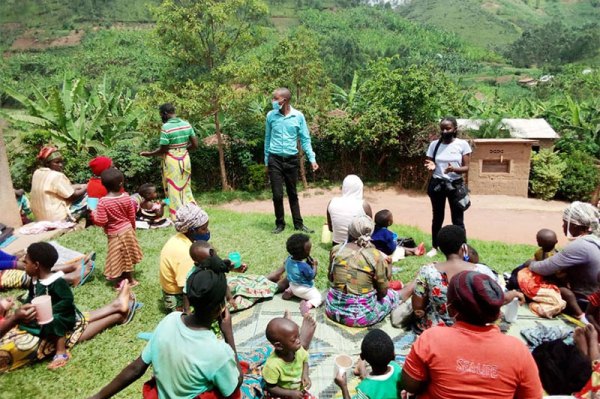
Local leaders in Gakenke district said that child stunting and malnutrition have remarkably reduced after parents adopted balanced diets for their children.
According to the Director of Health in Gakenke district, child stunting has reduced from 63.9% in 2010 to 30% currently, a progress attributed to proper feeding on nutritious foods as well as a daily balanced diet.
Hategekimana added that the robust campaigns were conducted through grassroots leaders to ensure that families understand the importance of a balanced diet and nutritious foods to their children.
Community health workers have done a great job to reduce stunting by following up children’s health and advising parents on proper feeding for their children.
Valentine Uwamariya, a resident of Kagoma Cell in Gakenke sector, said that public awareness campaigns were very helpful to her.
Before the awareness campaign, she hardly prepared balanced diet for her children as she regularly cooked sweet potatoes and yams served with beans, which was not nutritious. Consequently, her children were stunted due to poor feeding. She now commends the government for teaching her how to prepare a well-balanced diet for her children.
Alphonsine Dushimiremariya, a resident of Mazinga village in Rusagara cell, said she learned how to prepare food for her family and the importance of ensuring cleanliness in the kitchen.
“Before preparing food, I wash my hands first with soap, wash the saucepans and clean the food to be prepared by removing all the dirt before peeling,” Said Dushimemariya.
According to Christine Nzeyimana, a community health worker at Mazinga village, Rusagara cell, cooking demonstrations at village level have improved children’s health.
“Village kitchen has improved children’s health through providing them with a balanced diet and nutritious foods needed at their ages.” Says Nzeyimana.
A balanced diet contains different kinds of foods in certain quantities and proportions so that the requirement for calories proteins, minerals, vitamins and alternatives nutrients is adequate.
Ensuring that improved availability and diversity of food sources translates into better health outcomes for the most vulnerable children requires more than accelerating production. It necessitates a mindset change in the way families prepare food for their children and understand the importance of receiving nutritious diets.
In this endeavor, Rwanda Biomedical Centre embarked on teaching cooking balanced diets using posters and other promotional materials detailing the kind of foods that children need, how to cook them, and the importance of proper hygiene and exclusive breast feeding for children under six months. The materials were distributed across the country for wider use.
According to Hategekimana Theogene, Director of Health in Gakenke District, preparing a balanced diet requires the role of each and everyone in the family. Men have an equal role to play in ensuring that children are given balanced diets. (End)
